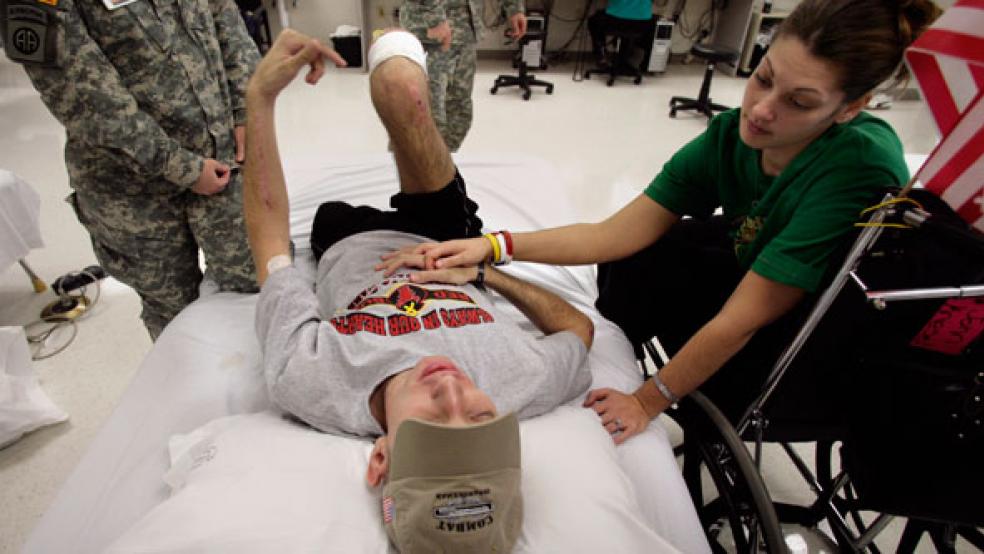Every year, the federal government spends about $3 billion to treat veterans and soldiers suffering from Post-Traumatic Stress Disorder (PTSD).
The problem is – no one knows if the treatment programs are actually working.
An alarming new report from the Institute of Medicine, part of the National Academy of Sciences, reveals that the Department of Defense and the Veterans Affairs Department have no way of knowing how effective their treatment programs are, since they don’t track long-term patient outcomes.
Related: VA Bureaucrats Nab Bonuses While Vets’ Benefits Lag
The 300-page report, which was mandated by Congress, found that DOD doesn’t have mechanisms in place for assessing the quality of PTSD care, while the VA doesn’t track the treatments each patient receives.
This is a huge deal: Both departments are pouring huge sums of money into treating hundreds of thousands of veterans and troops each year without understanding or analyzing the effectiveness of their programs.
Between 2010 and 2012, DOD spent $789.1 million on PTSD treatments – while the VA spent $8.5 billion in that same period.
On top of this, more veterans are requesting PTSD care. The number of vets who sought PTSD treatment from the VA more than doubled between 2003 and 2012, from 190,000 to more than half a million vets, the report found.
“Given that the DOD and VA are responsible for serving millions of service members, families and veterans, we found it surprising that no PTSD outcome measures are used consistently to know if these treatments are working or not," the report’s author, Sandro Galea, professor and chair of the department of epidemiology at Columbia University in New York City, told NextGov. “They could be highly effective, but we won't know unless outcomes are tracked and evaluated.”
Related: Bipartisan Deal Reached on Better Care for Veterans
The Institute of Medicine not only questioned the effectiveness of the treatment programs, but also raised questions about how well both departments’ programs are structured.
DOD’s program is local and crisis driven – but it has very little “planning devoted to the development of a long-range approach to obtaining desired outcomes,” the report said, adding that leaders within DOD aren’t held accountable for “failing to implement programs meant to effectively manage PTSD in troops.”
The report also raised questions about whether VA hospital administrations follow the agency’s minimum-care requirements for veterans with PTSD. For its part, the VA is in the process of modernizing its electronic health record system, which will include the psychotherapy treatment plans of each patient – making cases easier to evaluate.
The report recommended that both departments develop an integrated PTSD management strategy to track patients’ PTSD treatments and progress – which will ultimately help determine whether their programs are working.
Top Reads from the Fiscal Times:





